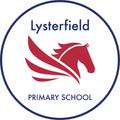Learning and Teaching

During a recent 2025 Prep school tour, I discussed how we teach literacy at LPS. One of the prospective parents pulled me aside and mentioned that our current practices are quite different from when her son, Peter*, attended LPS six years ago. She said that Peter* loved school and was always marked at level. However, since starting secondary school, some gaps have arisen in his literacy skills, meaning that he hasn’t felt as successful as he did in primary school.
Just like our students, as a school, we are always looking to learn and improve by evaluating our practices and ensuring that our staff engage in current professional learning. After some recent professional learning, we have gained new insights and adjusted some of our literacy practices to integrate evidence-based approaches into our classroom practice, promoting success in reading, writing, and spelling.
Along with these changes, we have introduced new assessments that align with our evidence-based approaches and have much stronger reliability than other benchmarking measures we previously used. These assessments help monitor how students are progressing, inform future instruction and goals, and also provide an evaluation of our teaching practice. As a result of these new assessments, we have identified some gaps in our students’ literacy skills that were previously undetected. Consequently, it may seem that your child has not progressed, as the Victorian Curriculum indicator (dot) may not have moved for this half year. This does not mean that your child has regressed or failed to progress in six months; it simply means that we are now assessing many more elements of literacy with an assessment that has stronger reliability and scope to support our students.
I want you to think back to Peter*. At LPS, our aim is for our students to leave literate, numerate, and curious, and to be lifelong learners so they are successful beyond their primary school years. Had we been teaching the way we are now and using the new assessments, we might have identified Peter’s literacy gaps and intervened earlier. It is our hope that with our new practices and assessments, we will be able to identify any gaps in our students’ literacy skills and provide the necessary support for their learning.
If you have any questions about our evidence-based practices or assessments, please feel free to contact me.
Have a wonderful long weekend everyone, mine will be spent being a 'Dance Mum'.
Kristine Roose | Assistant Principal, Learning & Teaching
